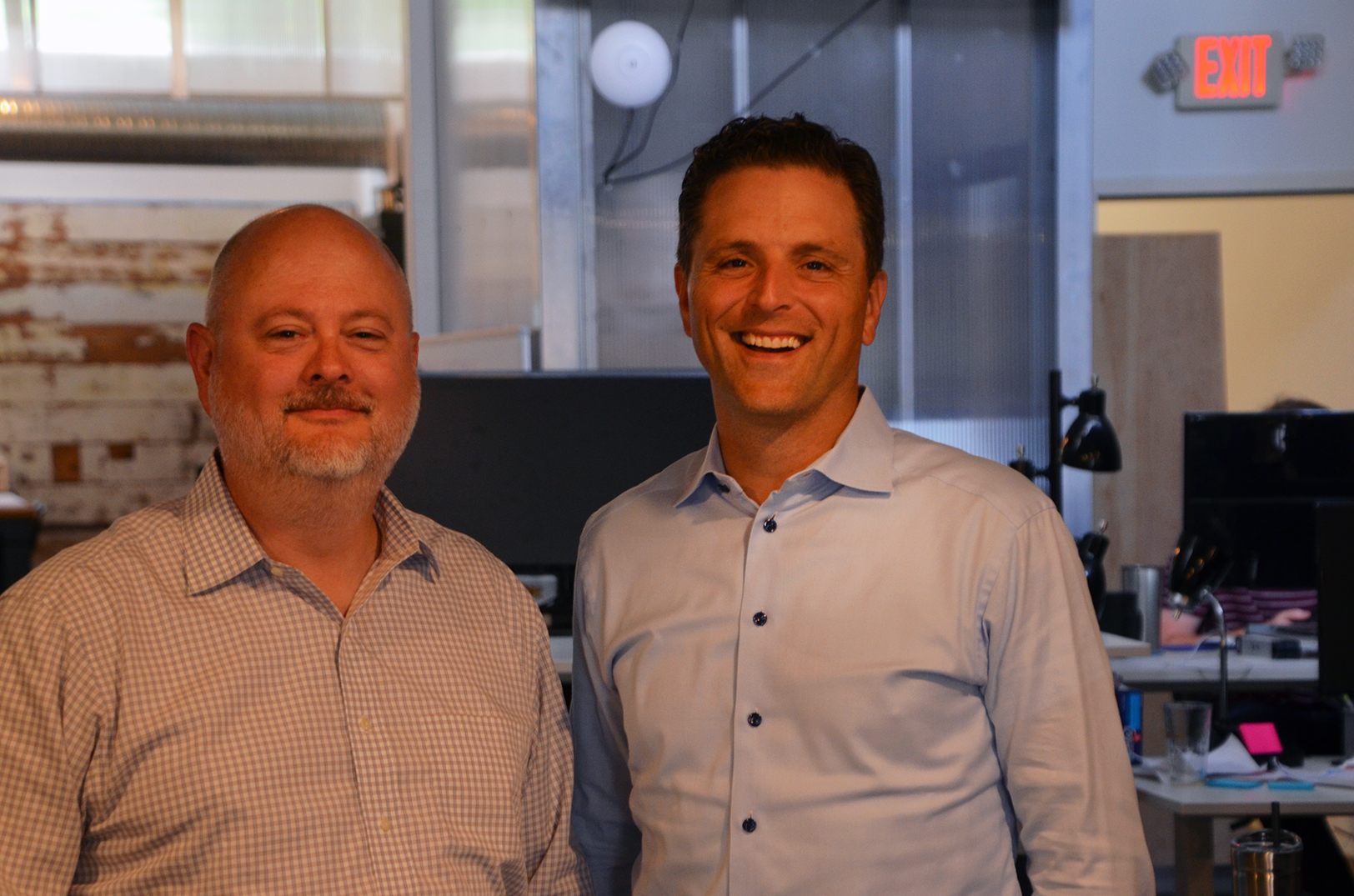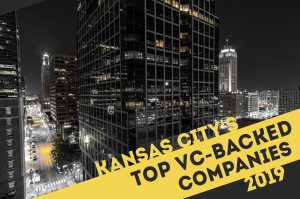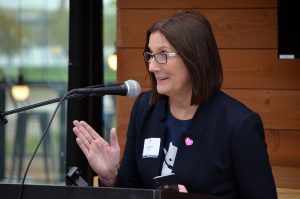Editor’s note: The following is the first in a series of analyses of Startland’s list of Kansas City’s Top Venture Capital-Backed Companies.
Proof points matter, said John Thomson.
“We’re evidence — based on the $100 million-plus growth equity investment we closed this spring — that you can build a world-class tech company in Kansas City,” said Thomson, co-founder of GovTech startup PayIt, a rising star in its industry and notable entry on Startland’s list of Kansas City’s Top Venture Capital-Backed Companies in 2019. “I hope we help spawn the next wave of entrepreneurs. Maybe one of them works for PayIt now, and will go on to start the next big company based on that experience. Maybe we inspire somebody else to see that it’s possible.”
The Top Venture Capital-Backed Companies List recognizes the momentum pushing an emerging cohort of Kansas City growth-stage, venture-backed companies. Click here to check out the full list.
The list of VC-backed companies is growing — along with the amount raised: $908.18 (up 89.7 percent from $478.75 million in 2018). Two obvious drivers of that increase are PayIt with more than $135 million on the board, and FinTech leader C2FO with $295.5 million banked.
But are a couple of big, headline-grabbing funding rounds enough to signal a swell of momentum across the Kansas City startup scene?
Not by themselves, said Victor Gutwein, founder and managing partner at M25, an influential venture fund in Chicago. At least not yet.
“If you look at other ecosystems that have been successful, that success has been driven by one or two really large outcomes,” said Gutwein, whose fund has invested locally in such startups as backstitch, Super Dispatch and Zohr, all of which landed on Startland’s Top VC-Backed list. “When you have a couple of really big swings, like C2FO and PayIt, they’re probably going to have really big exits, which can be significant for the overall ecosystem. A huge billion-dollar-plus exit can be more meaningful than all the work that the government does to encourage entrepreneurship, all the efforts of an accelerator.”
Observers can surmise, however, based on the high quality of the investors involved in the C2FO and Payit deals, that Kansas City is fertile ground for the creation of worthwhile companies, he said.
“These are Softbank [leading the round for C2FO] and Insight Partners [for PayIt] — let that sink in. Those are huge stamps of approval,” Gutwein said. “The takeaway is that Kansas City has gotten huge investments from global investors who are saying these are some of the best deals they’ve seen across the world.”
And while such deals gobbled up nearly half of the funding total on the Top VC-Backed List — $427.3 million of 908.18 million in 2019 — the smaller startups on the list still saw a year-over-year funding jump of 81 percent, from $265.27 million in 2018 to $480.88 million in 2019.
Growth mindset
PayIt’s hefty investment was about growth, Thomson said, describing the early innings of building a multi-billion-dollar business.
“Capital itself isn’t the goal. It’s a means to an end. It’s fertilizer for the garden — it’s not the garden.”
— John Thomson, CEO of PayIt
“Capital itself isn’t the goal. It’s a means to an end. It’s fertilizer for the garden — it’s not the garden,” he said. “You couldn’t build what we’re building without capital partners along the way. It’s tremendously important, but that itself is not why we’re doing this.”
Founders must be intentional about how they seek and use venture capital, warned Lisa Tamayo, whose pet wearables startup, Scollar, began relocating to Kansas City this spring from its former headquarters in the San Francisco Bay Area.
“It’s all about the timing. With Scollar, we’ve brought in very little outside capital, but we’ve been very deliberate about that — not so much because we’re worried about diluting equity, but because we want to control the company,” said Tamayo, CEO of Scollar. “We know exactly what we want to do, and we’re looking for people who can execute well with us. I’m only willing to lose equity if I know the person who I’m welcoming not only brings money, but also has experience, for example, building marketplaces or hardware, or maybe has incredible connections with supply chain.”
Click here to read more about Scollar.
Currently in a half-million round, Scollar is pursuing funding through private investment, angels, development partners, corporate partners and potentially VCs, she said.
“My only job is to grow Scollar — to make sure that I have distribution, sales, happy customers, worthwhile partners — and if I have all that in place, then the VCs will come to me and I can negotiate better terms,” Tamayo said. “I will tell the investors in the room, ‘I’m vetting you just as much as you are vetting me.’ I want the right people and the right money. We’ll make the deal if they’re going to bring the right value to us.”
Kansas City’s investment landscape has proven welcoming, she added.
“The funding and VC scene are actually more fertile for us in Kansas City. Coming from Silicon Valley, where we’re a little fish in a very big pond — especially as a hardware company — the investment groups are reluctant, which makes it really challenging,” she said. “But in Kansas City, it’s much more focused because we’re an animal health company. One introduction leads to another introduction. I just by happenstance got an introduction to someone I’d been trying to reach for about a year. The doors open up a little bit differently. And people in this area are much more open to investing in a company like ours.”
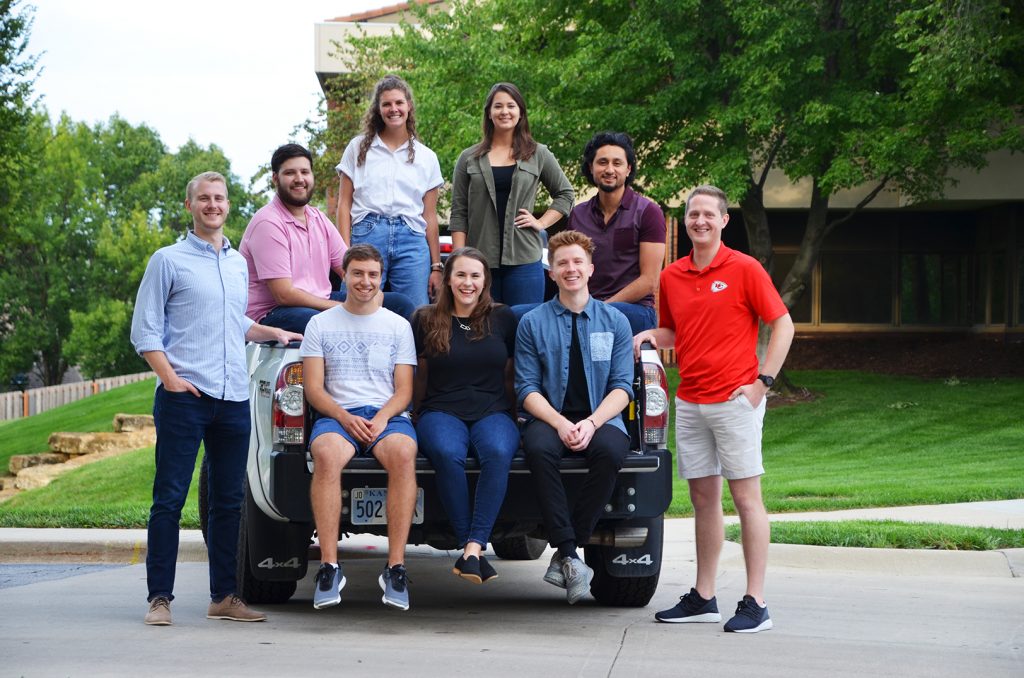
Bungii
A thrilling trend
Ben Jackson is seeing similar validation across the ecosystem, he said.
“It seems like every week there’s another huge round or raise, or another company that’s expanding, or gotten a key patent – it’s thrilling. It’s encouraging,” said Jackson, co-founder and president of Bungii.
His startup — an app-based, on-demand hauling service — this week announced a $9.4 million Series A round, led by Kansas City investors.
Click here to read more about the Bungii investment.
“I was advised to not even waste my time here. But after the round closed, we did the math, and over 95 percent of the money came from specifically Kansas City investors.”
— Ben Jackson, president, Bungii
“Time and time again, I hear that it’s impossible to raise money in the Midwest. It’s impossible to raise money in Kansas City,” Jackson said. “I was advised to not even waste my time here. But after the round closed, we did the math, and over 95 percent of the money came from specifically Kansas City investors.”
“This is proof that things are changing very quickly and is possible to raise money here. There are fantastic investors here,” he added, noting it doesn’t take companies as big as C2FO or PayIt to land meaningful deals. “Spend some time in this area before looking to the coasts.”
Meaningful rounds at companies the size of Bungii are exciting for investors like M25, Gutwein said. Of particular interest on Startland’s Top VC-Backed list, for example, was BacklotCars — ranked No. 4 based on the list’s KC Growth Index.
“BacklotCars had a couple of rounds, really quickly, back-to-back. And that’s pure venture — from Seed to Series A, which people respect — and it’s happening fast,” Gutwein said. “For people who are trying to make investments, this is a huge proof point this year in Kansas City.”
Click here to read more about BacklotCars’ recent funding.
Don’t get comfortable
Donald Hawkins bristles at the suggestion Kansas City’s startup ecosystem is thriving. Even with abundant resources, organizations focused on supporting founders and startups are competing instead of collaborating, he said.
“It’s really important for founders in the Midwest to stop being quiet, and inform the powers-that-be, who control the resources, of stuff that’s just stupid. In a lot of instances, these people and organizations are actually hurting the ecosystem,” said Hawkins, founder of Griffin Technologies and the founder network KC Collective. “I 100-percent believe that everybody here is committed to making KC a vibrant entrepreneurial ecosystem, but you have to step back and go, ‘If we have this many resources here — and Kansas City has an exorbitant amount of resources compared to other markets — why do so many of our companies continue to fail and disappear?’”
For every industry publication that calls Kansas City a tech startup haven, he said, there’s a report showing KC lagging behind its peer cities. Chapman and Company, for example, published a report in February indicating KC underperformed on venture deals by $100 million in 2018, despite cool jobs and connectivity in the region, Hawkins cited.
KC Rising and Inc. magazine published similar findings, noting the success of C2FO and PayIt, but also persistent challenges across the overall ecosystem.
“Come on, bro. We’re on the ground. Kansas City is losing resources now,” Hawkins said, referencing the current Techstars Kansas City hiatus, as well as struggles at other local programs and accelerators. “I don’t want people or [resource organizations] to feel comfortable. Don’t say, ‘Man, things are amazing. We’re doing great!’ We’re not.”
For 2019, the list of Kansas City’s Top VC-Backed Companies boasted 61 entries, with 19 new startups joining, but six dropping because of an exit, relocation or business failure.
That’s still not enough new names nor companies — and certainly not enough new minority founders or executives — among the ranks of startups that have raised $1 million or more with at least one institutional investor, Hawkins said. And it doesn’t accurately represent the flavor of startups, he added.
“It’s not fun to be in an ecosystem when you look laterally and all you see is yourself, alone. What makes it fun is when you get a bunch of Matt Moodys,” Hawkins said, referencing the founder of Bellwethr, an artificial intelligence and machine learning-based startup that is among the new companies on the Startland list. “Can you imagine what KC would be like if you had a bunch of companies like Matt Moody’s? That’s fun. That’s people competing to hire developers. That’s talent moving to Kansas City. That’s companies raising huge Series A rounds. Instead, we have C2FO and PayIt — which is great, but they’re in a whole different stratosphere. We need more Matt Moodys.”
Click here to read more about Matt Moody’s Bellwethr, which was selected as one of Startland’s Kansas City Startups to Watch in 2019.
No place like home
Kansas City is already home to significant sources of capital, Gutwein said, referencing the prominence and activity of KCRise Fund, a backer of companies ranging from PayIt to Bungii and BacklotCars, and other local funders who pushed the list’s amount raised from Kansas City-area investors to 53.2 percent (up slightly from 53.1 percent in 2018).
“Kansas City actually has more seed funds and seed capital than most markets its size, which is something you don’t hear every day,” he said. “There’s even a decent amount of family office money that’s invested in tech.”
While that data point isn’t widely tracked in other metros, Gutwein said, Kansas City likely is on the high end of comparable regions in the Midwest.
That’s not necessarily good or bad, he added, depending on whether a company also has outside validation from an investor removed from the immediate region. The geography of funders becomes more significant based on the breakdown of a company’s cap table.
“The impact isn’t on the success of the company, it’s on the distribution of money after a company exits,” Gutwein said. “If there’s a lot of money made locally, that can be reinvested and more people will go out and start their own companies. But it’s not even just wealth generating, it’s more about encouraging people to invest in and start their own startups locally.”
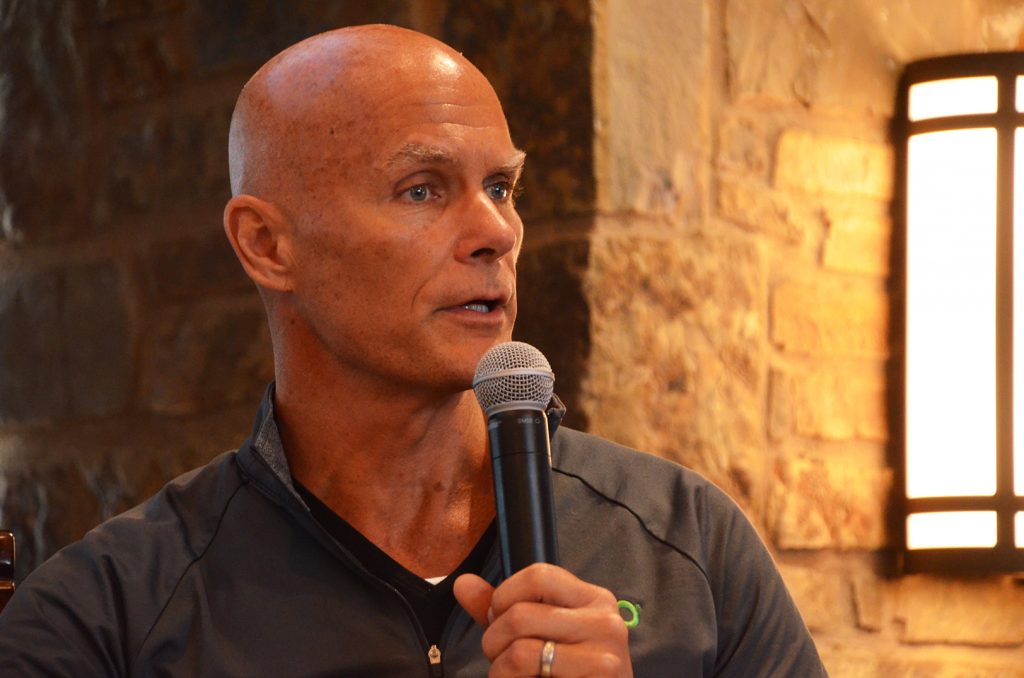
Sandy Kemper, C2FO
The billion-dollar bigger picture
While companies like C2FO and PayIt made some of the biggest funding headlines so far this year, Thomson said, the formula for proving a startup’s viability is the same for early and growth stage companies alike.
“Two of the most underrated characteristics of any successful entrepreneur are toughness and tenacity. Never say die. Never quit. Always figure it out. It’s one of the things we look for: that competitive fire,” he said. “You see it as a common thread in entrepreneurs: a burning passion to figure it out and get it done, no matter what.”
Hitting a funding benchmark is meaningless if the business can’t actually execute or problem solve, Thomson added.
“Investments are always forward-looking,” Sandy Kemper, founder and CEO of C2FO, told Startland previously. “Our job is to make sure that we’re living up to our ability to expand this company in a way that is deserving of this type of attention, this type of investment.”
Bungii’s Jackson agreed.
“This is just another milestone along the way,” Jackson said. “While there’s absolutely time for celebration — and I was encouraging our team to take a step back, take a breath and enjoy the moment — it’s just as important that we don’t lose sight of the bigger picture.”
You can’t build Kansas City’s next billion-dollar company if your vision only extends as far as the current or even next funding round, Thomson said.
“We’re just back at it,” he said. “That’s what’s fun for us: Create more. Imagine more.”
This story is possible thanks to support from the Ewing Marion Kauffman Foundation, a private, nonpartisan foundation that works together with communities in education and entrepreneurship to create uncommon solutions and empower people to shape their futures and be successful.
For more information, visit www.kauffman.org and connect at www.twitter.com/kauffmanfdn and www.facebook.com/kauffmanfdn




